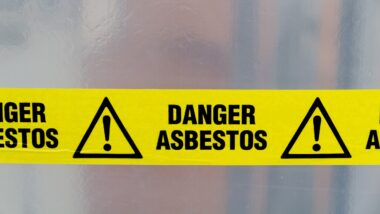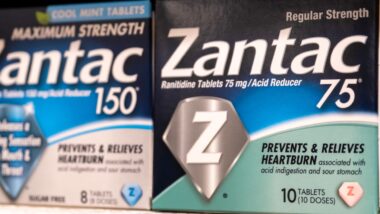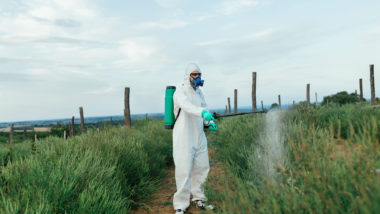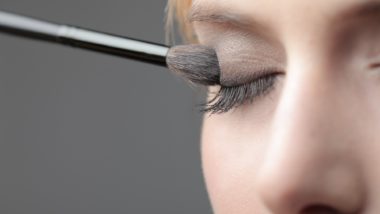Top Class Actions’s website and social media posts use affiliate links. If you make a purchase using such links, we may receive a commission, but it will not result in any additional charges to you. Please review our Affiliate Link Disclosure for more information.
Michigan lawmakers are taking measures to implement a statewide glyphosate ban which would prevent residents from using the herbicide on lawns and in flower beds in an effort to curb Roundup-related cancer.
The proposed state legislation was introduced on November 5, 2020, by Sen. Rosemary Bayer (D-Beverly Hills) and co-sponsored by eight other senators. The bill has been referred to the Committee on Environmental Quality.
The bill stems from years of widespread controversy over the weedkiller, particularly in light of media coverage and numerous Roundup lawsuits across the country, alleging that the glyphosate-based Monsanto product is linked to cancer.
What Would the Michigan Glyphosate Ban Do?
If passed, the glyphosate ban bill would amend the Natural Resources and Environmental Protection Act of 1994 by adding a subpart prohibiting the chemical from being used “on residential turfgrass or in residential flower beds or other residential groundcover beds.”
In addition, the legislation would require those who sell glyphosate products — such as Roundup — to place a prominent sign near the item, indicating in 24 size font, “State law prohibits the application of glyphosate, a herbicide, on residential turfgrass or in residential flower beds or other residential groundcover beds.”
Under the proposed law, a person who violates the glyphosate ban would be held accountable for a civil infraction and incur a civil fine of no more than $100.
Retailers who sell glyphosate products without warning consumers about the state’s ban would be subject to a $100 civil fine for each day of violation that occurs within one year of the bill’s passage and $200 for each day following the first year.
 What Is Glyphosate?
What Is Glyphosate?
Glyphosate is an herbicide known by the brand name, Roundup. Used to kill weeds, both residential property owners and industrial farmers regularly use the product.
According to estimates, glyphosate use on crops in the Midwest agricultural industry grew exponentially between 1992 to 2016, increasing from 13.9 million pounds to 287 million pounds in less than twenty-five years.
First introduced to the U.S. in 1974, concerns have grown that continued use of Roundup has led to resistance, resulting in more of the product being used. Additionally, the introduction of Roundup Ready Seeds in 1996 has been a factor affecting the increased usage of the product among commercial farmers, effectively compelling usage of Roundup in order to grow the seeds.
The controversy surrounding glyphosate has been wide-ranging, and the product has already been banned to some degree in many cities and towns across the U.S., as well as in locations worldwide. Additionally, California listed the chemical as a carcinogen under Proposition 65.
While the Environmental Protection Agency conducted an investigation into the potential carcinogenicity and risks of glyphosate, it concluded that there was no cause for concern when the product is used in accordance with the label’s directions.
However, the International Agency for Research on Cancer has taken the position that glyphosate is “probably carcinogenic to humans.”
Does Glyphosate Cause Cancer?
Although the EPA and health agencies in several countries have not taken the stance to classify glyphosate as a carcinogen, several juries found enough evidence linking the herbicide to individuals who developed cancer after years of exposure to the chemical, awarding substantial verdicts in the cases.
Additionally, countless other lawsuits have been filed, including class action lawsuits, alleging that Monsanto or a retailer failed to warn about the dangers of the allegedly carcinogenic product.
While studies are ongoing, glyphosate exposure has been linked to:
• Leukemias
• B-cell lymphoma
• T-cell lymphoma
• Non-Hodgkin lymphoma
• Chronic lymphocytic leukemia
• Hairy cell leukemia
• Liver disease
Even brief exposure to the chemical has been known to cause adverse health effects, such as irritation to the throat, eyes, skin, and nose.
ATTORNEY ADVERTISING
Top Class Actions is a Proud Member of the American Bar Association
LEGAL INFORMATION IS NOT LEGAL ADVICE
Top Class Actions Legal Statement
©2008 – 2024 Top Class Actions® LLC
Various Trademarks held by their respective owners
This website is not intended for viewing or usage by European Union citizens.
Get Help – It’s Free
Join a Roundup Weed Killer Cancer Class Action Lawsuit Investigation
For the most up-to-date information on this case, click here.


 What Is Glyphosate?
What Is Glyphosate?










